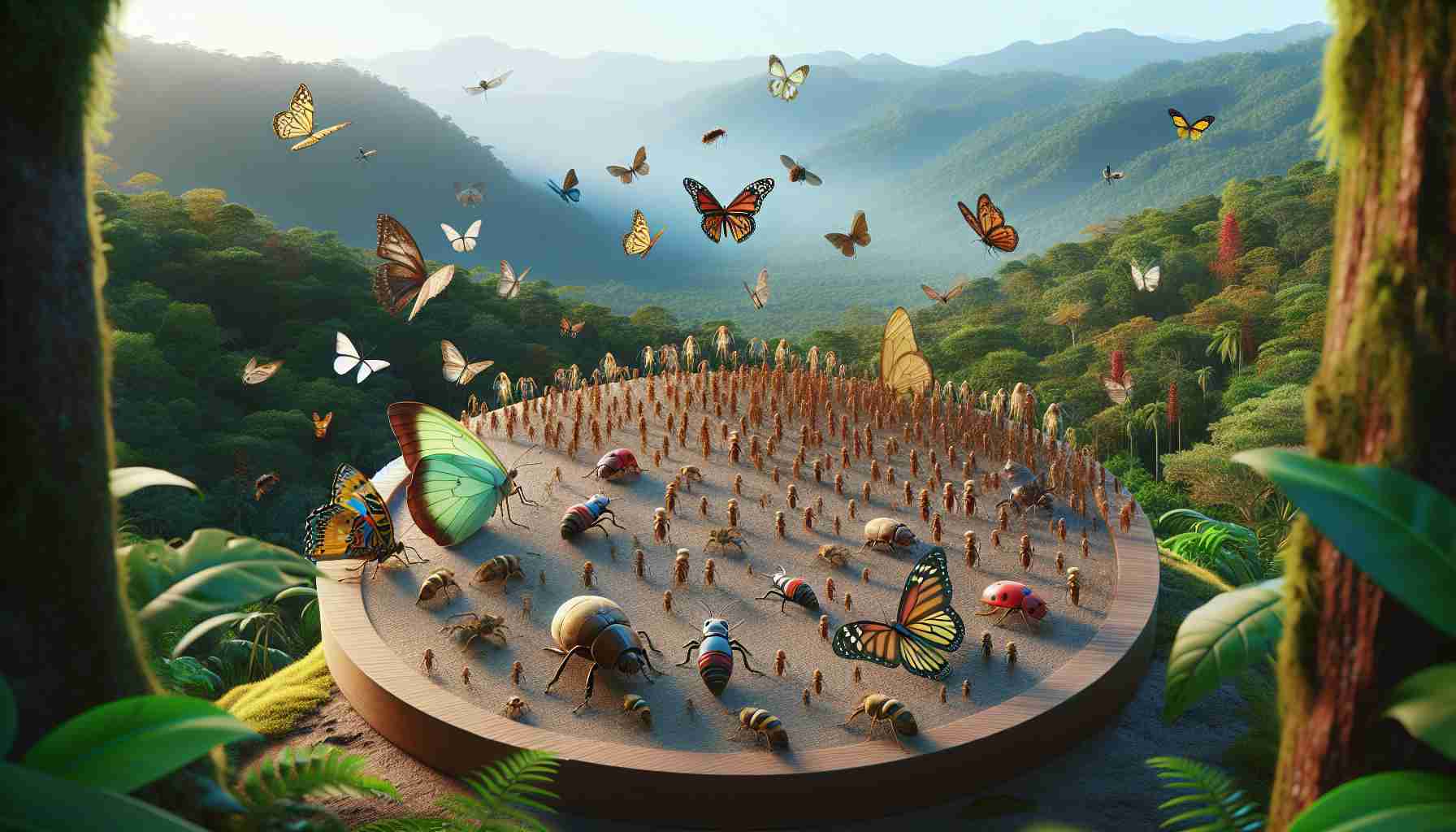- Insect populations in Costa Rica’s ACG have plummeted by 80%, disrupting the ecosystem’s balance and endangering plant pollination.
- Climate change is a primary driver, altering weather patterns and making habitats uninhabitable for insects.
- Ecologists Daniel Janzen and Winifred Hallwachs highlight the severity of the situation and the urgent need for action.
- An innovative solution involves local residents becoming “parataxonomists,” documenting biodiversity to foster conservation efforts.
- The intertwined fate of humans and nature is emphasized, calling for immediate measures to protect and revitalize ecosystems.
In the verdant realm of Costa Rica’s Área de Conservación Guanacaste (ACG), a crisis brews beneath the canopy—an unprecedented 80% decline in insect populations. Once a thriving symphony of life, this natural paradise is now eerily silent as climate change tightens its relentless grip. The vibrant caterpillars and myriad insect species that once flourished here are disappearing, threatening the pollination of over 10,000 plant species and the delicate balance of the ecosystem.
This dramatic decline, highlighted by renowned ecologists Daniel Janzen and Winifred Hallwachs, underscores a critical ecological issue. As unpredictable weather patterns transform once-predictable rainy seasons into chaotic cycles, insects face an enormous threat to their survival—their habitats increasingly inhospitable.
Yet, there is a glimmer of hope. Janzen and Hallwachs champion an innovative approach by enlisting local communities as “parataxonomists.” This initiative empowers residents to document biodiversity, fostering a tangible connection to the land and emphasizing that to safeguard nature, one must first cherish it as intimately as their own gardens.
The message is unmistakable: the entwinement of wild nature and human lives cannot be ignored. Immediate action is essential—our survival depends on the very insects we are losing. By acknowledging and acting upon the interconnectedness of all life forms, there remains a chance to rejuvenate our planet’s ecosystems and restore the vibrancy of Costa Rica’s cherished reserve. As the ecological “house” smolders, it is imperative that we face this crisis head-on, for the fate of the forests—and our future—hangs in the balance.
Unraveling the Silent Crisis: How Costa Rica’s Insect Decline Threatens Global Biodiversity
How is climate change specifically affecting insect populations in Costa Rica?
Climate change has resulted in unpredictable weather patterns, transforming historically stable rainy seasons into erratic cycles. These changes significantly disrupt the habitats of insects in Costa Rica’s Área de Conservación Guanacaste (ACG), making living conditions increasingly hostile. Temperature fluctuations, inconsistent rainfall, and extreme weather events can destroy the delicate balance necessary for insects to thrive. Notably, such climatic shifts threaten the intricate process of pollination for over 10,000 plant species, though data on the exact extent of this impact remains under scrutiny.
What role do “parataxonomists” play in addressing this ecological challenge, and how effective is this approach?
“Parataxonomists” are local community members trained to document biodiversity. This initiative, spearheaded by ecologists Daniel Janzen and Winifred Hallwachs, serves multiple purposes: it generates valuable data on the diversity and health of local ecosystems and fosters a deep, personal connection between individuals and their environment. By engaging local communities, the approach fosters conservation awareness and advocacy, instilling a sense of stewardship over local biodiversity. Early data suggest this model is successful in enhancing local conservation efforts and could be replicated in other regions facing similar crises.
What are the broader implications if the decline in insect populations continues unchecked?
If insect populations continue to plummet, the effects could ripple through global ecosystems. Insects are crucial for pollination, decomposition, and as a food source for other animals. Their decline can lead to a collapse in food webs, affecting food security and biodiversity globally. Plants that rely on insects for pollination may not reproduce efficiently, which could decrease plant diversity and affect those that depend on these plants for survival, including humans. Moreover, the ecological imbalance could increase the proliferation of pests, potentially impacting agriculture and human health.
Suggested Links
– Visit Costa Rica
– Conservation International
– World Wildlife Fund













